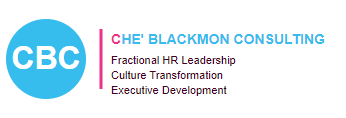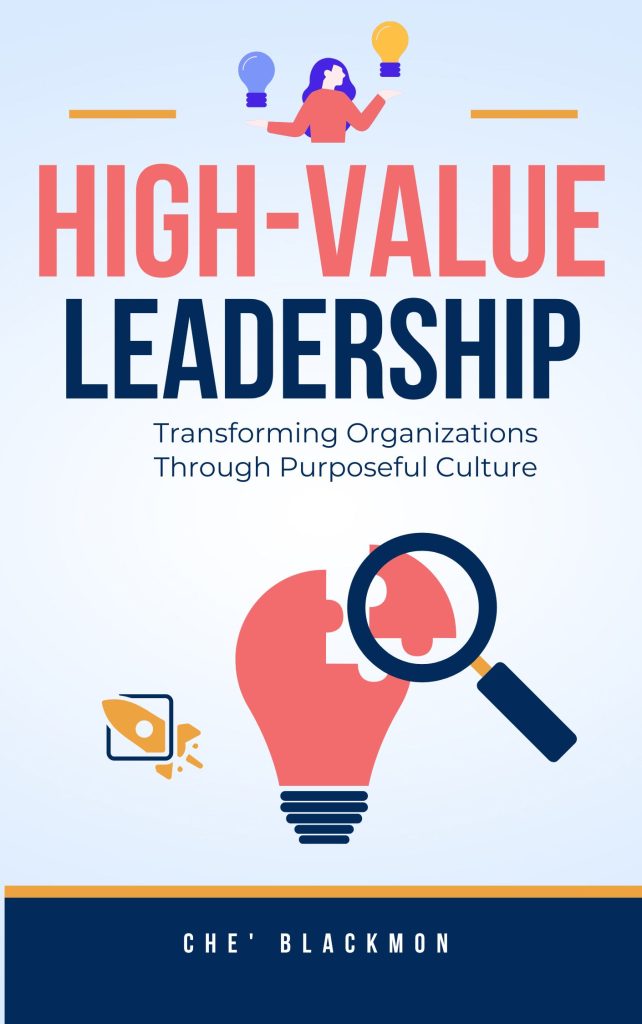Your cart is currently empty!
In today’s dynamic workplace environment, understanding and properly implementing compliance requirements for the Family and Medical Leave Act (FMLA) and Americans with Disabilities Act (ADA) represents both a legal obligation and a strategic opportunity for building a high-value company culture. Organizations that master these compliance areas don’t just avoid costly litigation, they create inclusive environments where employees feel valued, supported, and empowered to contribute their best work.
The Intersection of Compliance and Culture
As I discussed in my book, “Mastering a High-Value Company Culture,” compliance should never be viewed as merely a box-checking exercise. Rather, it should be integrated into the foundation of your cultural framework. When properly implemented, FMLA and ADA compliance initiatives reflect an organization’s commitment to core values such as respect, dignity, and inclusion. They signal to employees that the company is invested in their well-being beyond just their productive output.
Companies that approach compliance from this perspective typically experience higher retention rates, stronger employee loyalty, and enhanced organizational reputation. The question becomes not “How do we meet minimum requirements?” but rather “How do we use these frameworks to strengthen our cultural foundation?”
Understanding the Basics: FMLA and ADA
Before diving into advanced implementation strategies, let’s establish a clear understanding of these two critical regulations.
Family and Medical Leave Act (FMLA): Provides eligible employees with up to 12 weeks of unpaid, job-protected leave per year for specific family and medical reasons. FMLA applies to organizations with 50 or more employees and to employees who have worked at least 1,250 hours over the previous 12 months.
Americans with Disabilities Act (ADA): Prohibits discrimination against individuals with disabilities and requires employers to provide reasonable accommodations unless doing so would cause undue hardship. The ADA applies to employers with 15 or more employees.
While these definitions seem straightforward, practical application often creates significant challenges for HR professionals and organizational leaders.
Common Compliance Challenges and Solutions
Challenge 1: Identifying Qualifying Conditions
Many organizations struggle with properly identifying conditions that qualify under FMLA or ADA. This confusion can lead to both unnecessary denials and inappropriate approvals.
Case Study: Midwest Manufacturing encountered this issue when an employee requested FMLA leave for anxiety. Initially, the request was denied because the condition wasn’t deemed “serious” enough. After implementing proper training and assessment protocols, the company recognized that mental health conditions can indeed qualify under both FMLA and ADA, depending on severity and impact on major life functions.
Solution: Develop comprehensive assessment tools that incorporate both objective medical documentation requirements and consideration of how conditions impact an employee’s ability to perform essential job functions. Train managers recognize potential qualifying conditions and report them to HR rather than making independent determinations.
Challenge 2: Managing Intermittent Leave
Intermittent leave under FMLA presents unique scheduling and operational challenges, particularly for production-based or customer-facing roles.
Case Study: TechSupport Inc. transformed their approach to intermittent leave by implementing flexible scheduling options and creating “floating” positions specifically designed to cover for employees on intermittent leave. This reduced scheduling disruptions by 47% and improved overall department morale.
Solution: Create systems that allow for predictable management of intermittent leave where possible. This might include developing specialized positions for coverage, cross-training employees, or implementing flexible scheduling options. Document patterns of leave usage while being careful not to penalize legitimate use.
Challenge 3: Interactive Process Documentation
The ADA’s requirement for an “interactive process” when determining reasonable accommodations often lacks proper documentation, creating liability risks.
Case Study: Financial Partners LLC established a standardized interactive process documentation system after facing a discrimination claim. Their new system includes scheduled check-ins, accommodation effectiveness assessments, and detailed records of all communication. Since implementation, they’ve successfully defended two potential claims by demonstrating their good-faith engagement in the process.
Solution: Implement a structured documentation system for all accommodation requests, including regular review periods to assess accommodation effectiveness. Document all meetings, conversations, and decisions made during the interactive process, ensuring both the employer and employee perspectives are recorded.

Integrating Compliance into Cultural Excellence
As emphasized in “Mastering a High-Value Company Culture,” compliance initiatives thrive when integrated into broader cultural values rather than existing as stand-alone policies. Here’s how to achieve this integration:
1. Leadership Modeling
When leaders demonstrate respect for FMLA and ADA processes—treating employees who utilize these benefits with dignity rather than resentment—it sets a powerful cultural tone. Leaders should openly discuss the importance of these protections in creating an inclusive workplace while emphasizing that utilizing legally protected leave or accommodations is not a reflection of dedication or performance.
2. Policy Language Transformation
Review your policy language to ensure it reflects cultural values beyond legal requirements. For example, instead of stating, “Employees must provide 30 days’ notice, when possible, for FMLA leave,” consider language like, “To support both team continuity and individual needs, we ask employees to partner with us by providing 30 days’ notice, when possible, for foreseeable leave.”
3. Training Beyond Compliance
Traditional compliance training focuses on legal requirements and processes. Elevate your training by incorporating discussions about why these protections matter, how they align with organizational values, and how they contribute to workplace dignity.
Current Trends Shaping FMLA and ADA Compliance
Remote Work Accommodations
The explosive growth of remote work has fundamentally changed the reasonable accommodation landscape. Organizations now have expanded options for accommodating certain disabilities, potentially reducing claims of undue hardship.
Best Practice: Develop clear remote work accommodation guidelines that outline which positions can be performed remotely and under what circumstances. Ensure these guidelines are applied consistently while still allowing for individualized assessment.
Mental Health Awareness
Courts increasingly recognize mental health conditions as qualifying disabilities under the ADA. Progressive employers are responding by expanding their mental health benefits and creating more flexible work arrangements.
Research Insight: According to the Harvard Business Review, companies that implemented comprehensive mental health support programs saw a 4:1 return on investment through reduced absenteeism, increased productivity, and lower healthcare costs.
Technological Accommodation Solutions
Advances in technology have created new possibilities for reasonable accommodations. From screen readers to speech-to-text software, technological solutions often represent relatively low-cost accommodations that enable employees with disabilities to perform essential job functions.
Best Practice: Establish relationships with technology vendors specializing in accommodation solutions and create a streamlined process for quickly implementing these tools when needed.
Actionable Takeaways for Immediate Implementation
- Conduct a compliance audit of your current FMLA and ADA processes, identifying gaps between current practice and both legal requirements and cultural aspirations.
- Create manager training specifically focused on recognizing potential FMLA/ADA situations and properly escalating them to HR.
- Develop standardized documentation templates for the ADA interactive process that prompt thorough consideration of accommodation options.
- Implement regular policy review cycles (at least annually) to ensure compliance with evolving legal interpretations and best practices.
- Establish metrics to measure both compliance effectiveness and cultural impact, such as accommodation approval rates, return-to-work rates following FMLA leave, and employee feedback regarding the accommodation process.
Building for the Future: Discussion Questions
As you consider your organization’s approach to FMLA and ADA compliance, reflect on these questions:
- How do our current compliance processes reflect our stated cultural values?
- What messages do employees receive when they request accommodations or leave?
- How can we transform compliance training from a boring necessity to a meaningful expression of our commitment to inclusion?
- What metrics would help us evaluate whether our compliance efforts are strengthening or weakening our cultural foundation?
- How can we better leverage compliance success stories to reinforce our cultural messaging?
Partner with Che’ Blackmon Consulting
Navigating the complexities of FMLA and ADA compliance while building a high-value culture requires expertise, strategic thinking, and practical implementation knowledge. At Che’ Blackmon Consulting, we specialize in transforming compliance requirements into cultural strengths.
Our services include:
- Comprehensive compliance audits with cultural impact assessment
- Manager training for FMLA/ADA recognition and response
- Policy development and transformation
- Cultural integration strategies for compliance initiatives
- Ongoing compliance support and coaching
To learn more about how we can help your organization master FMLA and ADA compliance while strengthening your cultural foundation, contact us at admin@cheblackmon.com . Let’s build a workplace where compliance and culture reinforce each other, creating sustainable success for your organization and meaningful support for your employees.
#FMLACompliance #ADACompliance #HRCompliance #EmployeeAccommodations #WorkplaceInclusion #HRBestPractices #LeaveManagement #DisabilityAccommodation #EmployeeSupport #WorkplaceCulture
Che’ Blackmon is the author of “Mastering a High-Value Company Culture” and Principal Consultant at Che’ Blackmon Consulting, specializing in helping organizations transform compliance requirements into cultural advantages.


